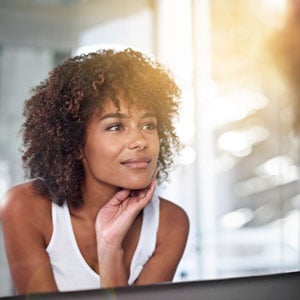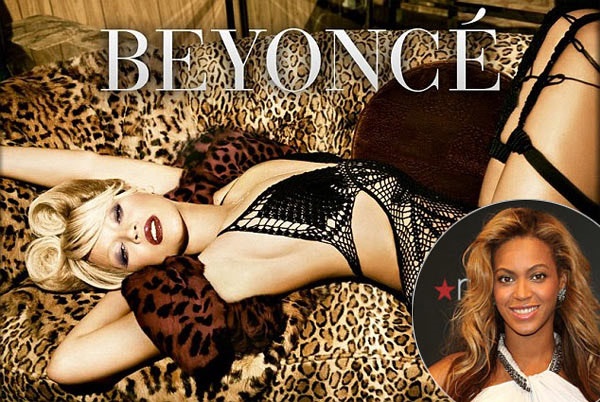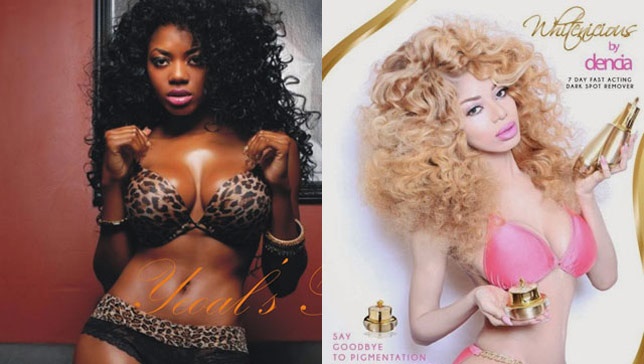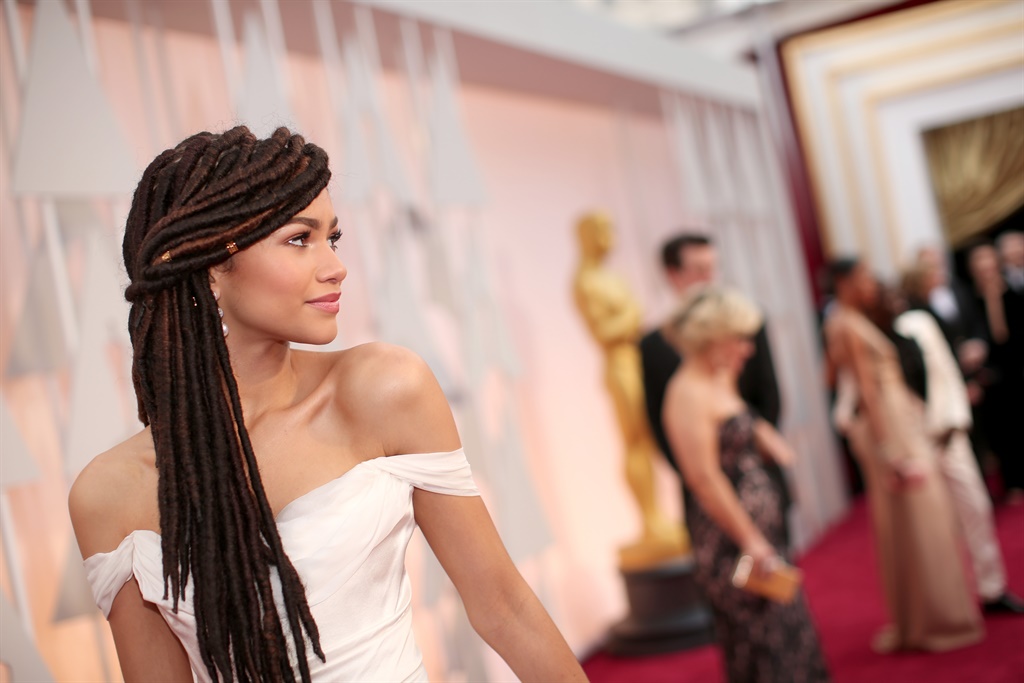
I have to cringe when I think about my early days of putting on makeup.
First, my mom wouldn’t let me touch the stuff until high school – which I can understand, knowing what I know now about how girls can be pressured to grow up too fast. But I was lagging behind other girls who’d learned to beautify their faces by middle school.
Then there was the long, awkward process of finding the right looks for me. It was discouraging to join white friends at Claire’s or flipping through dELiA*s catalogues (remember those?) and feel like I couldn’t pull off any of the looks.
I thought the pink lip glosses looked awful on me because my lips were too big, and the glittery eye shadows looked strange because my skin color was all wrong. I thought foundation was always the wrong shade because I couldn’t properly blend the two brown shades I’d found.
Too many times I cringed at my reflection and thought, “Why am I so ugly?”
I didn’t realize that this makeup wasn’t made for me at all – and neither was the ideal of beauty that I saw in magazines or the movies.
Since then, I’ve learned from my makeup blunders. But in a way, not much has changed – it’s still a challenge to find the right colors for my dark skin.
I’m sure I’m not the only one with embarrassing memories of looks I tried to pull off when I was young. These memories go even deeper than makeup – for many young girls, starting to buy beauty products goes hand in hand with learning about what beauty means.
From television shows to commercials to magazine advertisements to celebrity culture, mainstream media has a big influence on how we understand beauty in the US. It’s an impossible standard for any woman to live up to – even models themselves don’t look like their photoshopped, heavily made up images in the magazines.
The beauty industry gains a lot from convincing us that we’re too fat, or too flat chested, or we don’t have clear enough skin – anything to say we’re not good enough so we need to buy something to improve our appearance.
Though anyone can wear makeup, regardless of gender, most of these products are marketed to women. And women get very strong messages that our value depends deeply on our attractiveness.
Combine those messages with the toxic idea that only white women are beautiful (so it’s my skin color that’s wrong, not the limited selection of foundation colors), and you can understand how damaging the beauty industry is for women of color.
It’s not just skin color – we also learn that so-called “attractive” eyes, hair, noses and more rarely (if ever) appear on Latinx, Asian, Black, or Native women.
These examples show how the beauty industry says that beauty means whiteness – and why it matters.
After this photoshopped image of beyonce looking shades lighter than her natural skin tone was used to promote her 4th album, many questioned whether the star used skin lighteners. Image: The Daily Mail
1. The Women Who Represent ‘Beauty’ Are Almost Exclusively White
The easiest way to confirm society’s belief in whiteness as beauty is to look at the most common images presented as “beautiful women.”
Glance at a Google image search, a rack of fashion magazines, or advertisements, and it’s clear that selling the image of “beauty” usually means taking pictures of white women.
One third of the US population is Black, Native American, Asian, Pacific Islander, or Latinx – but a recent report of New York’s Fashion Week, one of the world’s biggest fashion events, revealed that participating models were 82.7% white, 9% Asian, 6% Black, and 2% Latinx.
Models of color even report that at photo shoots and runway shows, makeup artists aren’t trained or equipped to work on their skin.
South Sudanese model Nykhor Paul said it all in an Instagram post about having to bring her own makeup to set: She said that as a Black model, she’s tired of not getting booked and of having to “apologize” for her Blackness.
People in the industry just assume that creating an image of beauty means working with white women.
This has a discouraging impact on women and girls of color. Photo after photo of a standard of beauty that looks nothing like us tells us that beauty is unattainable – because we’ll never be white.
2. For Women of Color, Lighter Skin Means More Beauty
The absence of women of color in images of beauty is even more disturbing when you realize that when the industry does advertise to women of color, it often includes telling us we should have lighter skin.
This one-way colorism shows up in the beauty industry, telling women of color that the darker we are, the uglier we are.
The message is subtler when companies use light-skinned models of color or make people like Beyoncé look lighter in ads. But it can also be as blatant as selling skin lightening creams with the promise of looking prettier with lighter skin.
Many of these creams have horrible side effects, including scarring and kidney damage. They’re sold prominently in countries with high percentages of people of color – like India, where nearly two thirds of dermatological products are for skin bleaching, and Nigeria, where 77% of women use them.
Some people compare this to white women’s tanning trends to say that the grass is always greener on the other side – don’t women with pale skin want to be darker, too? The key difference is that most white people who tan aren’t doing so to look like a person of color. Some do aim for an “exotic” look, and that exotification is still harmful to people of color.
When it comes to lightening skin, the message is clearly racist: The more you can look like a white woman, the prettier you are.
Nigerian and Cameroonian singer, Dencia created a controversial skin lightner, Whiteness. Image: Japan Sociology
3. Women of Color with More Anglicized Features Are Valued More
What do Halle Berry, Jessica Alba, and Zoe Saldana have in common?
They’re all successful actresses of color who are widely considered beautiful – and all of them have slender features and light skin.
Valuing whiteness as beauty comes down to more than just skin color. It’s also about the Anglicized features we associate with white women – smaller noses, thinner lips, less prominent curves.
We’re told that the most beautiful people in the world are celebrities like those who grace People magazine’s “Most Beautiful People” covers – and it’s no coincidence that they’re rarely women of color.
Our society bases the idea of beauty on things like the “golden ratio,” which rates traits like eye size, nose width, lip fullness, and hairstyle – and says the ideal proportions of so-called “universal beauty” never rank non-European features as most beautiful.
So the features that match the “golden ratio” are what we know as beautiful. No wonder there’s a saying that refers to the type of Black model the industry looks for: “She has to be a white girl dipped in chocolate.”
Black women everywhere are celebrating the recent visibility of actresses like Lupita Nuyong’o and Viola Davis – not only because it’s so rare for Black actresses to be so visible, but also because it’s even more rare for women with their features to be considered pretty.
One New York Times reporter revealed common ideas about Black women’s features when she called Viola “less than classically beautiful.”
Viola Davis is gorgeous – and the fact that she doesn’t look like a white woman “dipped in chocolate” doesn’t make her any less so.
4. The Straighter the Hair, The Better
I never miss an opportunity to fawn over Viola Davis – so let’s stay on the subject while we’re here.
When Davis’ character removed her wig and showed her natural hair on an episode of How to Get Away with Murder, my squeal could be heard ’round the world.
That moment was huge for Black women – because it’s so rare that a Black woman, especially a main character on primetime TV, actually gets to show her hair without wigs or flat ironing or chemical straightening.
Because naturally kinky hair is not considered beautiful.
Instead, the beauty industry shows Black women with straight hair and sells the chance to get a little closer to that unattainable beauty by chemically straightening our hair.
At the annual Victoria’s Secret runway show – widely regarded as a showcase of the most gorgeous models – Angola model Maria Borges recently made history by wearing her natural hair.
Think about that: She was the very first to show that Black women don’t have to hide their true hair texture in order to look beautiful.
This is long overdue, and it’s way past time for the rest of the industry to get on board with the beauty of Black hair.
According to, Channel24, Fashion Police's Guiliana Rancic caused much disruption amongst viewers when commenting that Zendaya's ethnic hairstyle made her look like she "smells like patchouli oil … or maybe weed". Image: Getty
5. The More Anglicized the Eyes, The Better
What does it mean to have beautiful eyes? According to the beauty industry, it means having eyes that look as European as possible.
East Asian women face pressure to make their eyes look “less Asian,” like the eyes many East Asian models are said to have. The pressure is so strong that some, like Chinese American media figure Julie Chen, opt for surgery to change their eyes.
Early in her career, Chen was told that her eyes looked “too Asian,” and that she would never have a seat at an anchor desk because she’s Chinese.
The Eurocentric beauty standard is so embedded in our media that it takes surgery for an East Asian woman to have a chance at success. That’s outrageous. This standard creates common and absurd ideas about beauty, like the so-called compliment that someone is “pretty for an Asian.”
Comments like these show that people actually believe that beauty is a white thing – and pretty people of color are just rare exceptions to the rule.
To read the rest of this story go to the original post by clicking here.
Maisha Z. Johnson is the Digital Content Associate and Staff Writer of Everyday Feminism.
Follow Women24 Twitter and like us on Facebook.




 Publications
Publications
 Partners
Partners

















